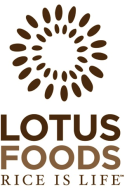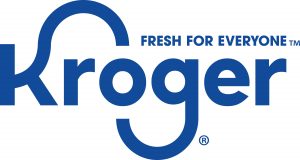MO 100 Top Impact CEO Ranking Honors Lotus Foods CEO Burke
 Lotus Foods CEO Andrew Burke has been honored with a 2024 MO 100 Top Impact CEO Ranking. Presented by Big Path Capital, this accolade underscores Burke’s visionary leadership and commitment to driving positive change within the industry.
Lotus Foods CEO Andrew Burke has been honored with a 2024 MO 100 Top Impact CEO Ranking. Presented by Big Path Capital, this accolade underscores Burke’s visionary leadership and commitment to driving positive change within the industry.
“This award recognizes the great work being done by every member of our team,” says Burke. “We are dedicated to scaling our impact and building on the legacy that Ken and Caryl began more than 29 years ago.”
Andrew Burke assumed the role of CEO in July 2023, succeeding co-founders Caryl Levine and Ken Lee, who were honored for the same award in 2023 for promoting organic and regenerative rice-growing practices. Levine and Lee continue to serve as visionaries on the board. Since arriving at Lotus Foods in 2019, Burke has adeptly navigated the company through challenging times, including the pandemic, efficiently scaling the business. This transition marks a pivotal moment in Lotus Foods’ nearly three-decade journey, as the company reaffirms its dedication to advancing sustainable and equitable food systems.
Reflecting on Burke’s tenure, Levine and Lee remarked, “Andrew’s leadership has been instrumental in propelling Lotus Foods forward, enhancing revenue streams, and attracting top-tier talent. Andrew’s strategic vision and unwavering commitment make him the ideal candidate to lead the company into its next phase of evolution, expanding regenerative organic agriculture and combating climate change.”
Burke’s recognition takes into account his decades of leadership and relevant industry experience prior to taking up the reins at Lotus Foods, including as CEO of TCHO Chocolate. Alongside fellow honorees, Burke joins the 2024 MO 100 cohort, inspiring and empowering businesses to prioritize impact and purpose. This year’s honorees reflect the burgeoning momentum of companies that prioritize social and environmental responsibility.
Michael Whelchel, founder and CEO of Big Path, lauded the honorees, stating, “The MO 100 Top Impact CEO Ranking celebrates leaders who harness the power of capitalism to foster shared prosperity. These CEOs are driving transformative change, championing a new paradigm of capitalism that prioritizes positive outcomes for all stakeholders.”
The 2024 MO 100 ranking spotlights 100 executives spearheading social and environmental impact within high-growth enterprises. These leaders exemplify the value of stakeholder-focused business models, which prioritize the well-being of shareholders, employees, customers, communities, and the environment alike.
With half the world’s population relying on rice for sustenance, Lotus Foods has long been at the forefront of promoting sustainable rice farming practices and biodiversity. Since its inception in 1995, the company has championed organic farming methods, farmer resilience, and initiatives empowering women. Lotus Foods’ latest Impact Report showcases its ongoing commitment to creating positive change in the industry and in rice-farming communities.
Burke and his fellow honorees will be celebrated at the MO 100 Awards Gala during the 2024 MO CEO Summit, scheduled for April 15-17, 2024, in Austin, Texas. The event will convene 200 purpose-driven CEOs for insightful panels, networking opportunities, and collaborative endeavors.
Since 1995, Lotus Foods has partnered in direct and fair trade with small family farmers around the world who are growing rice more sustainably while preserving rice biodiversity. Lotus Foods’ product line includes pigmented heirloom and organic rice varieties such as Forbidden Rice, Jade Pearl Rice, Red Rice, traditional Basmati and Jasmine Rice and Tri-color Rice as well as Rice Ramen, Pad Thai Rice Noodles and Rice Ramen Noodle Soup Cups. Products are available at major retailers nationwide.
As a certified B Corporation, Lotus Foods is committed to “Changing How Rice Is Grown around the World” by focusing on rice grown using the System of Rice Intensification, which it calls More Crop Per Drop. SRI minimizes water usage, builds soil, empowers women, rewards farmers with higher yields, and reduces climate impact. Lotus Foods’ basmati farmers who use these practices were the first rice farmers ever to be Regenerative Organic Certified and recently achieved the Gold level, making Lotus Foods’ Organic White and Brown Basmati Rice the only ROC Gold certified rice.
For more news of interest to the specialty food industry, subscribe to Gourmet News.
FTC, States Sue to Block Kroger Acquisition of Albertsons
 The Federal Trade Commission on Monday, Feb. 26, sued to block the largest proposed supermarket merger in U.S. history—Kroger Company’s $24.6 billion acquisition of the Albertsons Companies, Inc.—alleging that the deal is anticompetitive. The Offices of the Attorneys General of Arizona, California, the District of Columbia, Illinois, Maryland, Nevada, New Mexico, Oregon and Wyoming are joining the commission’s federal lawsuit.
The Federal Trade Commission on Monday, Feb. 26, sued to block the largest proposed supermarket merger in U.S. history—Kroger Company’s $24.6 billion acquisition of the Albertsons Companies, Inc.—alleging that the deal is anticompetitive. The Offices of the Attorneys General of Arizona, California, the District of Columbia, Illinois, Maryland, Nevada, New Mexico, Oregon and Wyoming are joining the commission’s federal lawsuit.
The FTC charges that the proposed deal will eliminate fierce competition between Kroger and Albertsons, leading to higher prices for groceries and other essential household items for millions of Americans. The loss of competition will also lead to lower quality products and services, while also narrowing consumers’ choices for where to shop for groceries. For thousands of grocery store workers, Kroger’s proposed acquisition of Albertsons would immediately erase aggressive competition for workers, threatening the ability of employees to secure higher wages, better benefits, and improved working conditions.
 “This supermarket mega merger comes as American consumers have seen the cost of groceries rise steadily over the past few years. Kroger’s acquisition of Albertsons would lead to additional grocery price hikes for everyday goods, further exacerbating the financial strain consumers across the country face today,” said Henry Liu, Director of the FTC’s Bureau of Competition. “Essential grocery store workers would also suffer under this deal, facing the threat of their wages dwindling, benefits diminishing, and their working conditions deteriorating.”
“This supermarket mega merger comes as American consumers have seen the cost of groceries rise steadily over the past few years. Kroger’s acquisition of Albertsons would lead to additional grocery price hikes for everyday goods, further exacerbating the financial strain consumers across the country face today,” said Henry Liu, Director of the FTC’s Bureau of Competition. “Essential grocery store workers would also suffer under this deal, facing the threat of their wages dwindling, benefits diminishing, and their working conditions deteriorating.”
The FTC issued an administrative complaint and authorized a lawsuit in federal court to block the proposed acquisition pending the Commission’s administrative proceedings. A bipartisan group of nine attorneys general is joining the FTC’s federal court complaint.
Kroger operates thousands of stores across 36 states, which includes regional banners such as Fred Meyer, Fry’s, Harris Teeter, King Soopers, Kroger, and Quality Food Centers. Albertsons also operates thousands of stores across 35 states under regional names including Albertsons, Haggen, Jewel-Osco, Pavilions, Safeway, and Vons. If the merger were completed, Kroger and Albertsons would operate more than 5,000 stores and approximately 4,000 retail pharmacies and would employ nearly 700,000 employees across 48 states.
Executives for both Kroger and Albertsons have acknowledged that the two supermarkets are direct competitors, forcing each other to aggressively compete for customers by lowering prices and for employees by providing better pay and benefits across the country. Similarly, executives for both supermarket chains have conceded that Kroger’s acquisition of Albertsons is anticompetitive, with one executive reacting candidly to the proposed deal: “you are basically creating a monopoly in grocery with the merger.”
Inadequate Divestiture Offering
To try to secure antitrust approval of their merger, Kroger and Albertsons have proposed to divest several hundred stores and select other assets to C&S Wholesale Grocers, which operates just 23 supermarkets and a single retail pharmacy. The FTC’s administrative complaint alleges that Kroger and Albertsons’s inadequate divestiture proposal is a hodgepodge of unconnected stores, banners, brands, and other assets that Kroger’s antitrust lawyers have cobbled together and falls far short of mitigating the lost competition between Kroger and Albertsons.
The FTC says the proposed divestitures are not a standalone business, and C&S would face significant obstacles stitching together the various parts and pieces from Kroger and Albertsons into a functioning business—let alone a successful competitor against a combined Kroger and Albertsons. The proposal completely ignores many affected regional and local markets where Kroger and Albertsons compete today. In areas where there are divestitures, the proposal fails to include all of the assets, resources, and capabilities that C&S would need to replicate the competitive intensity that exists today between Kroger and Albertsons. Even if C&S were to survive as an operator, Kroger and Albertsons’s proposed divestitures still do not solve the multitude of competitive issues created by the proposed acquisition, according to the complaint.
Harm to Consumers
In addition to raising grocery prices, the FTC alleges that Kroger’s acquisition of Albertsons would also diminish their incentive to compete on quality. Today, Kroger and Albertsons compete to improve their stores in many ways, including offering fresher produce, higher quality products, improved private label offerings, a broader array of in-store services, flexible store and pharmacy hours, and curbside pickup services.
The FTC charges that the deal would eliminate head-to-head price and quality competition, which have driven both supermarkets to lower their prices and improve their product and service offerings. If the merger takes place, grocery prices will increase, and Kroger and Albertsons’ incentive to improve product quality and customer service will decrease, further harming customers.
Harm to Workers
Kroger and Albertsons are the two largest employers of union grocery labor in the United States. They actively compete against one another for workers. The two companies also try to poach grocery workers from each other, especially in local markets where they overlap. Currently, most workers for both supermarket chains are members of the United Food and Commercial Workers union.
Today, UFCW and other unions leverage the fact that Kroger and Albertsons are separate and competing companies. Unions push for both supermarket chains to negotiate better employment terms for union grocery workers, especially when negotiating over collective bargaining agreements (CBAs).
A combined Kroger/Albertsons, however, would gain increased leverage over workers and their unions—to the detriment of workers, the FTC alleges. The combined Kroger and Albertsons would have more leverage to impose subpar terms on union grocery workers that slow improvements to wages, worsen benefits, and potentially degrade working conditions. In some regions, such as in Denver, the combined Kroger/Albertsons would be the only employer of union grocery labor. Union grocery workers ability to leverage the threat of a boycott or strike to negotiate better CBA terms would also be weakened.
The Commission vote to issue the administrative complaint and authorize staff to seek a temporary restraining order and preliminary injunction in federal district court was 3-0. The federal court complaint and request for preliminary relief will be filed jointly with the state attorneys general in the U.S. District Court for the District of Oregon.
A public version of the complaint will be available and linked to this news release as soon as possible.
NOTE: The Commission issues an administrative complaint when it has “reason to believe” that the law has been or is being violated, and it appears to the Commission that a proceeding is in the public interest. The issuance of the administrative complaint marks the beginning of a proceeding in which the allegations will be tried in a formal hearing before an administrative law judge.
The Federal Trade Commission works to promote competition, and protect and educate consumers. You can learn more about how competition benefits consumers or file an antitrust complaint. For the latest news and resources, follow the FTC on social media, subscribe to press releases and read our blog.
For more news of interest to the grocery industry, subscribe to Gourmet News.
Arctic Glacier Adds to Senior Leadership Team
 Arctic Glacier, North America’s leading manufacturer and distributor of premium ice products and services, announces the appointment of three new senior leadership team members including CFO, CIO and the newly created role of general counsel. The ice industry is primed for significant growth given robust economic indicators and shifting consumer behaviors, and Arctic Glacier is leading the way as a key-market player. With a growth-minded, performance-based culture that is setting the pace for future growth within the ice industry, and Arctic Glacier is the fastest-growing brand and only one seeing year-over-year increases.
Arctic Glacier, North America’s leading manufacturer and distributor of premium ice products and services, announces the appointment of three new senior leadership team members including CFO, CIO and the newly created role of general counsel. The ice industry is primed for significant growth given robust economic indicators and shifting consumer behaviors, and Arctic Glacier is leading the way as a key-market player. With a growth-minded, performance-based culture that is setting the pace for future growth within the ice industry, and Arctic Glacier is the fastest-growing brand and only one seeing year-over-year increases.
The newly appointed Senior Leadership Team members are:
General Counsel Travis Bonnell
Bonnell offers extensive, international industrial experience providing real practical solutions to business, finance, and legal challenges to executive leadership in highly regulated and complex compliance environments. In the newly created role of general counsel, Bonnell will be the senior legal advisor to Arctic Glacier, acting as the in-house legal representative, Prior to joining Arctic Glacier, Bonnell previously held several executive leadership roles with Rehab Industries where he was responsible for the development and execution of the company’s organic and inorganic growth initiatives.
Chief Information Officer Doug Saunders
Saunders is an expert in leading business-critical, complex, high-profile global initiatives, programs, and multi-functional projects. He is focused on driving sound, strategic solutions in practical phased steps, achieving results within a contemporary budget-conscious and control-aware framework. Saunders will lead all IT functions while providing the vision, strategy, and tactics to transform and upgrade the company’s IT applications and the business processes impacted by those changes. Prior to joining Arctic Glacier, Saunders was chief information officer for Sweeping Corporation of America where he implemented SalesForce for 70+ locations in addition to managing security strategy, infrastructure services, and mergers & acquisitions.
Chief Financial Officer Stephanie Choudri
Choudri brings a wealth of knowledge and expertise as a senior-level finance executive. She most recently served as a partner with CFGI’s New York office where she provided accounting, consulting, and interim management services to clients in a variety of industries. She also held the roles of managing director and senior manager. Prior to working at CFGI, she was the chief financial officer at DuJour Media Group, LLC. Choudri is skilled at technical and operational accounting assistance in areas that include revenue recognition, share-based compensation, business combinations, debt modifications, and complex equity and financing arrangements. Choudri will be focused on implementing business controls and process improvements.
“With this enhanced and energetic Senior Leadership Team, I know we have the right people, with the right combination of skills in the right positions to make a big impact to realize our objectives”, said Chief Executive Officer Peter Laport. “I am confident with their sharp operational and financial focus, deep technical and industry expertise, and proven leadership capabilities, our new leaders are adding value to an already stellar team.”
Arctic Glacier’s new Senior Leadership Team’s depth of experience and wealth of knowledge will be pivotal in driving continued growth. These experienced business leaders will continue to support the organization’s world-class talent and commitment to its customers.
Arctic Glacier Premium Ice is the premier provider of high-quality, premium ice products serving North America. For over 140 years the company has perfected the art of ice making, best-in-class service, food safety and reliable logistics. Today Arctic Glacier produces and delivers over 2.5 billion pounds annually of premium ice products to supermarkets, mass merchants, c-stores, dollar stores, gas stations, and liquor stores, as well other commercial and industrial businesses. Arctic Glacier services over 75,000 customers from production facilities, warehouses and distribution centers across the United States and Canada.
For more news of interest to the foodservice industry, subscribe to Gourmet News.








